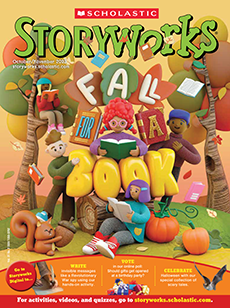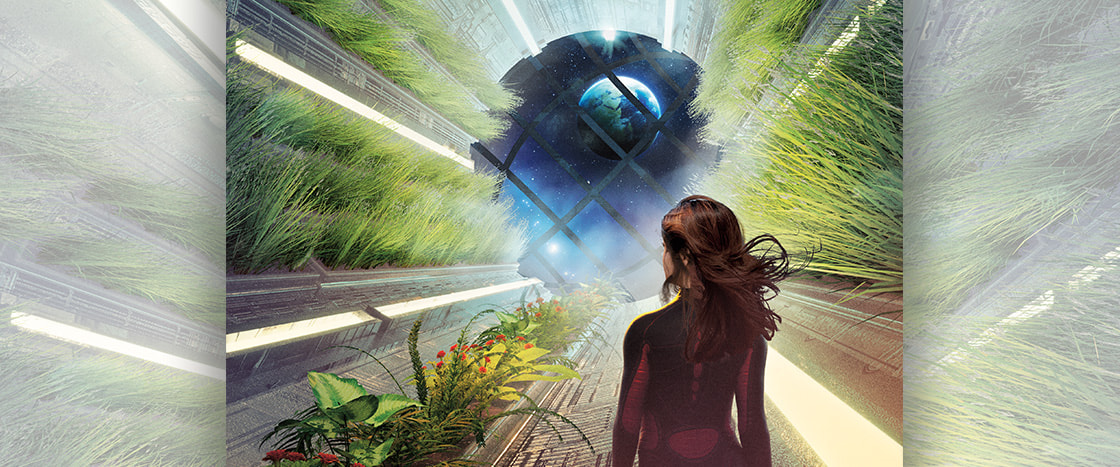I was reading a book on my hologram device when Rio showed up at my bunk pod.
“Astra, why aren’t you packing?” Rio asked. “You have to finish before the Celebration tonight.”
Everyone on the Vida loves Rio. He’s the smartest kid in our class, and he’s also good at sports. If he weren’t my best friend, I would hate him.
“I don’t have much to pack. All my books are on here.” I waved the holo device at him.
“Look, I know you’d rather stay in your room and read about time travel. But the Landing Day Celebration isn’t just some fancy dinner. It’s important,” he said.
“You sound like my parents.”
His face turned serious. “They just want what’s best for you, Astra.”
You mean they just want what’s best for the ship, I thought.
My parents were a big deal on the Vida. They managed the ship’s food supply. Our survival was in their hands.
I knew my parents loved me, but I felt like I was always disappointing them. I could never remember my chores or where I was supposed to be. One time I even burned dinner because I was reading and forgot about it. We have a limited amount of food on the Vida. Wasting it is one of the worst things you can do.
The only time I felt like myself was when I was in the ag pod with Oma. The ag pod was where we kept the plants that would become our food crops on Rubin 23V. Oma had designed the ag pod and the plants—a nutritious grain called teff. I used to spend hours in the ag pod, talking with Oma about time travel.
“I brought you this,” Rio said. I snapped out of my daze as he tossed a small object at me. “I found it on the floor of my pod. You must have dropped it.”
I picked it up. It was the size of my hand. The surface was cracked. I could tell from the screen that it was some kind of holo device.
“This isn’t mine,” I said.
“Your name is on it,” Rio said.
I turned the holo over. ASTRA was carved into it in jagged letters.
“But it’s not mine—” I stopped. I could tell Rio didn’t believe me.


